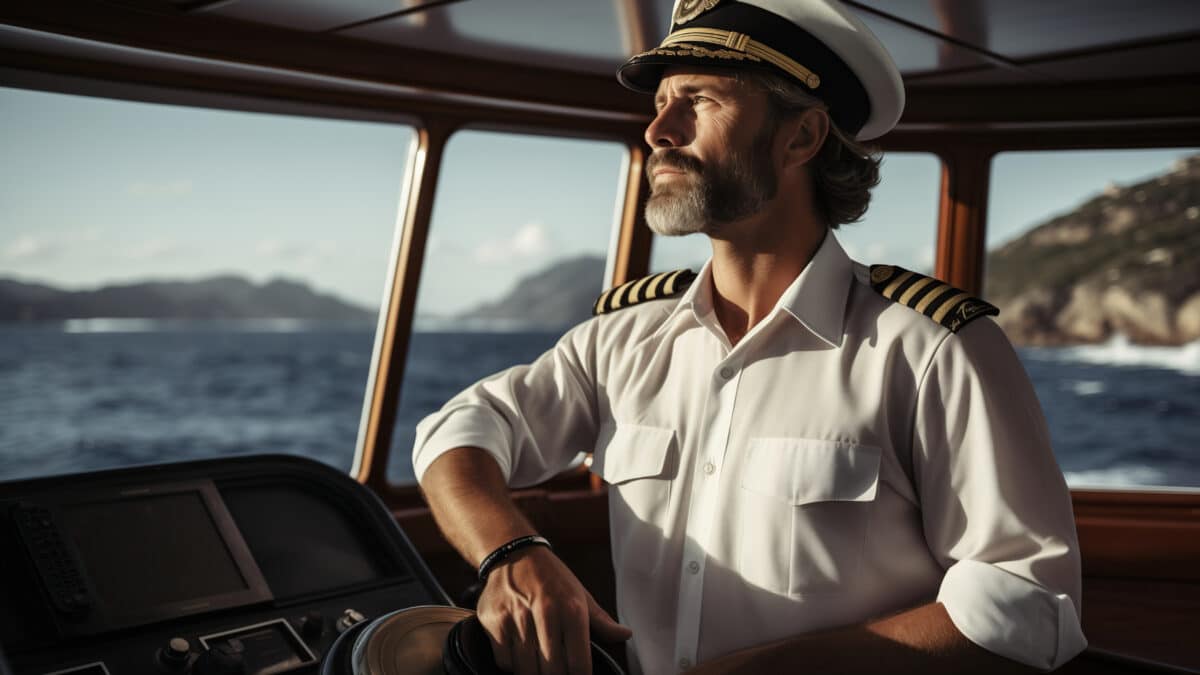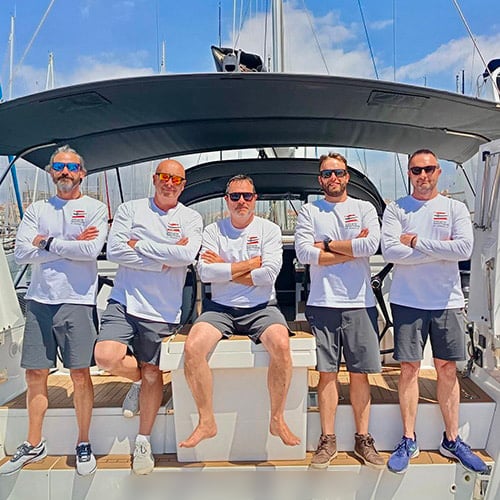
Eco-friendly boats: the future of boating
1 August 2024
Boat and yacht insurance: the essentials for insuring your boat
1 August 2024From commanding the yacht, to managing the crew, to navigating the sometimes capricious seas: the captain is both the strategist and the guardian of the nautical experience. In this article, we’ll explore in detail the skills needed to excel as a professional yacht captain, as well as the expectations yacht owners have of them.
The skills of a yacht captain: multi-tasking!
The captain must have a thorough knowledge of local and international maritime navigation rules (COLREGS), yacht handling, meteorology and electronic navigation. He must be able to navigate in a wide range of weather conditions, and make quick decisions in an emergency. Obviously, he or she must have experience and skills in coastal and offshore navigation, as well as the ability to plan passages taking account of currents and weather conditions. Finally, it goes without saying that the captain must have a thorough understanding of the yacht’s electrical, mechanical and hydraulic systems.
Beyond the yacht itself, a good captain must take responsibility for his crew, ensuring their training, safety and well-being through effective communication. He must also ensure the yacht’s smooth running by managing its technical aspects, including maintenance, repairs and provisioning. He or she must also communicate with other stakeholders, and be able to resolve potential conflicts.
The captain must be a leader capable of making sound decisions in complex situations and motivating his team, while managing his own stress and remaining calm under pressure.
Boat owners’ expectations regarding their captain’s skills
In addition to his skills as a professional sailor, boat owners also expect the captain to have a certain “savoir-être”.
Professionalism and discretion
The captain must be professional, courteous and discreet in his interactions with owners and their guests. It must represent the owner with integrity and confidentiality
Experience and knowledge of destinations
Owners often appreciate captains who have extensive sailing experience in the destinations they wish to visit.
Adaptability
The captain’s interpersonal and communication skills enable him to adapt to the demands and preferences of both owners and potential customers.
Stress management
The captain must be able to handle emergency situations and make quick, informed decisions, in order to meet the challenges at sea, which are not always predictable!
Being a professional yacht captain requires a complex mix of technical, leadership and interpersonal skills. These are skills that are acquired as soon as you start training, and built up over the course of your sailing experiences.
Become a captain by following our officially recognized and validated training courses: Capitaine 200 and Capitaine 500 du site.



